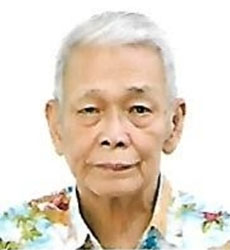"A PROPHET is not without honor, save in his own country and in his own house." This biblical quotation is a fitting epitaph for Mikhail Sergeyevich Gorbachev, the last secretary-general of the Communist Party of the Soviet Union (CPSU), who died on Aug. 30, 2022. He is a hero in most of the world for ending the Cold War. His reforms of glasnost (openness) and perestroika (restructuring) resulted in the largely peaceful restoration of freedom for millions of people in what were once the satellite countries of the Soviet Union. The world has felt more secure after Gorbachev agreed to enter into nuclear arms limitation treaties with the United States. For the public outside the Soviet Union, Gorbachev's receiving the Nobel Peace Prize was thus nothing short of meritorious and well-deserved.
But in his own country, the Russian Federation, Gorbachev is blamed and reviled for the dismantling of the Soviet Union although as he stated in his speech at the ceremonies formalizing the dissolution of the USSR, his reforms were directed, on the contrary, at saving the union from collapse. He took pride in the following accomplishments: "political and religious freedoms, the end of totalitarianism, the introduction of democracy and a market economy, and the end of the arms race and the Cold War." Today, in the context of what has happened and is happening in Russia, including Putin's war on Ukraine, the Gorbachev legacy seems but a fleeting dream.
Continue reading with one of these options:
Ad-free access
P 80 per month
(billed annually at P 960)
- Unlimited ad-free access to website articles
- Limited offer: Subscribe today and get digital edition access for free (accessible with up to 3 devices)


